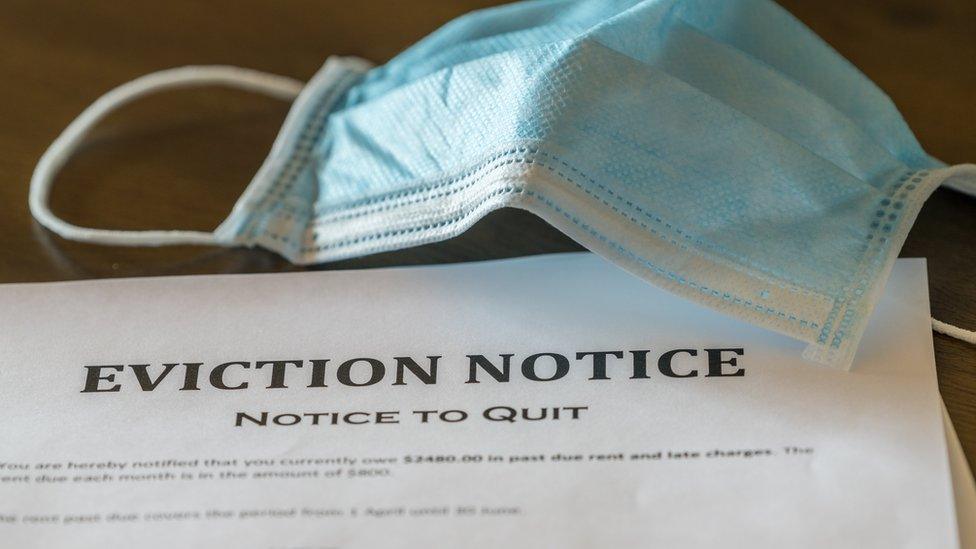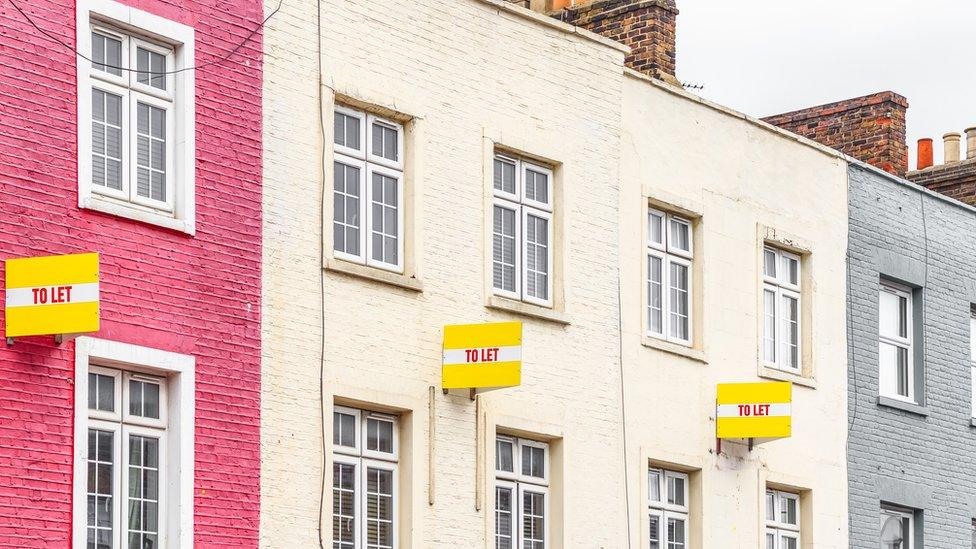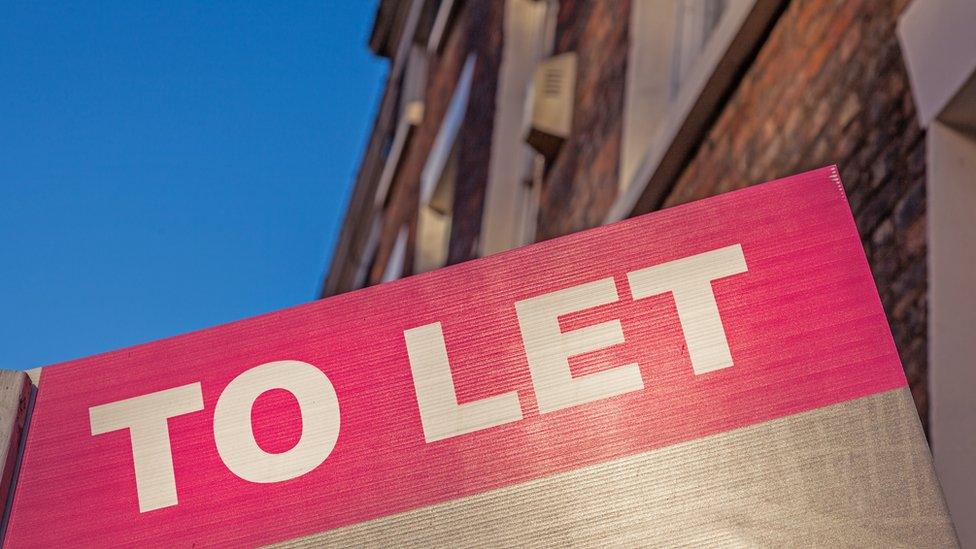Coronavirus: Sir Keir Starmer says evictions ban 'must be extended'
- Published

Sir Keir Starmer says the evictions ban in England and Wales "must be extended" before the measure runs out on Sunday.
The Labour leader, external wants the government to offer "a credible plan to keep their promise that no renter will lose their home because of coronavirus".
The temporary ban, initially introduced in March to help those financially hit by the virus lockdown, has been extended twice.
The government says it has taken "unprecedented action" to help renters.
But Labour says they must act now to avoid "a homelessness crisis this winter".
According to recent estimated figures from the homelessness charity Shelter, external at least 322,000 private renters have fallen in to rent arrears since the start of the pandemic, which could put their home at risk.
Labour's shadow housing secretary Thangam Debbonaire said: "Coronavirus cases are rising, vast swathes of the country are set to be under local lockdown, and the Covid jobs crisis is set to get worse.
"This is no time for the government to re-start evictions."
She also accused the government of wasting the "short time they bought themselves by extending the ban in August, prioritising reopening old wounds on Brexit above protecting renters".
Ms Debbonaire argues that Housing Secretary Robert Jenrick should have used parliamentary time to pass laws preventing automatic evictions instead of introducing the Internal Market Bill.
Labour wants the government to fulfil a manifesto commitment to end Section 21 or "no fault" evictions which allow landlords to take back possession of a property without needing to give a reason for their decision.
A three-month ban was introduced in March, but in June, Mr Jenrick extended it by two-months.
In August, in addition to extending the evictions ban by four weeks, the UK government also changed the minimum notice periods tenants receive in England for evictions from three to six months, with an exemption for cases involving activities like anti-social behaviour and domestic abuse.
The government also says that bailiffs will be prevented from enforcing eviction notices in areas where gatherings in homes have been restricted because of a local rise in cases.
The Welsh government has also implemented rules ensuring landlords cannot give less than six months notice for evictions until at least 31 March 2021.
In Scotland, the government supports extending the requirement of a six-month notice period to March 2021, but the change requires approval from the Scottish Parliament.
And in Northern Ireland, landlords have to give tenants at least 12 weeks' notice before applying for a court order to secure an eviction.
'Not sustainable'
Speaking ahead of the evictions ban expiring in England, Ben Beadle, Chief Executive of the National Residential Landlords Association, said the government's framework "broadly strike the right balance between protecting tenants affected by Covid and the need for landlords to tackle the most severe cases including anti-social tenants and cases of extreme rent arrears".
"That said, we remain concerned that the expectation for landlords, the majority of whom are not property tycoons, is to go without rent for anything up to a year before such cases are deemed a priority.
"Such a position is not sustainable, especially as there is almost no chance of the rent arrears being recouped."
Siddhartha Mehta, a campaigner with public health charity Medact, said the recent spike in Covid-19 cases meant there "couldn't be a worse time" to lift the ban.
Ensuring people have decent housing is an "important part" of efforts to stop the spread of the pandemic, she said.
"The government says that evictions won't be enforced in areas where there is a local lockdown in place, but if it accepts that people being evicted risks worsening the pandemic, why is it lifting the evictions ban at all?"
A housing department spokesperson said Labour's claims were "misleading," adding "we've taken unprecedented action to support renters by banning evictions for six months, preventing people getting into financial hardship and helping businesses to pay salaries.
"We have now gone further by changing the law to increase notice periods to six months to help keep people in their homes over the winter months and introducing a 'winter truce' on the enforcement of evictions for the first time.
"In addition we have put in place a welfare safety net of nearly £9.3bn and increased Local Housing Allowance rates to cover the lowest 30% of market rents."
- Published28 May 2021

- Published21 August 2020

- Published15 September 2020
